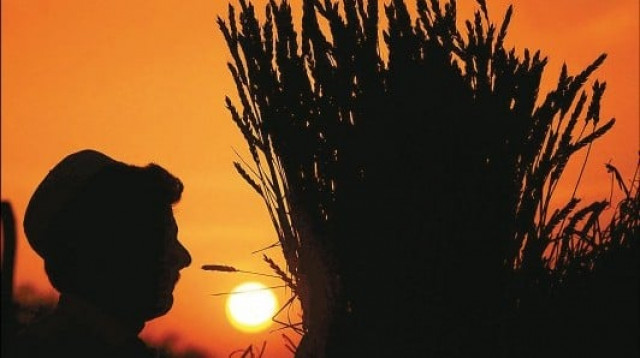Pakistan at ‘high’ risk of food crisis: Report
Food Security Risk Index ranks Pakistan 27th among 46 nations.

Out of the 48 countries considered to be at “high” risk of a food crisis, Pakistan is ranked on 27, according to an analysis published on Wednesday.
Three-quarters of African countries and several “Arab Spring” nations are at high or extreme risk of a food crisis as well, according to the recently released report called Food Security Risk Index.
In a survey of 197 countries, 59 are most at risk of food insecurity, the British consultancy Maplecroft revealed. Thirty-nine of these are African, the report said.
Out of the 11 countries that are in the “extreme risk” category, nine are in Africa.
They include Somalia and the Democratic Republic of Congo (DR Congo), which are ranked joint first, Burundi (4th), Chad (5th), Ethiopia (6th), Eritrea (7th), South Sudan (9th), the Comoros (10th) and Sierra Leone (11th).
Haiti (3rd) and Afghanistan (8th) are the other two countries in the extreme risk category.
“Although a food crisis has not emerged yet, there is potential for food-related upheaval across the most vulnerable regions,” including sub-Saharan African and Arab states, said Maplecroft’s Helen Hodge.
The 48 countries considered to be at “high” risk for food supplies include Yemen (15th), Syria (16th), Pakistan (27th), Papua New Guinea (33rd), North Korea (35th), Iraq (54th) and Libya (58th).
Egypt, ranked 71st of the 197 countries, and Tunisia, 100th, are among medium-risk countries.
Sources of food insecurity range from conflict and instability in the Sahel, DR Congo and eastern Africa to rising prices for corn, caused by the worst US drought in 50 years and declining production in former Soviet countries, Maplecroft said.
The Food Security Risk Index is intended for governments, NGOs and businesses to identify countries that could be susceptible to hunger or unrest because of food shortages or price hikes.
“The drivers of the ‘Arab Awakening [Spring]’ were varied and complex and included long standing public anger at high levels of governmental corruption and oppressive tactics against populations and political opposition,” said Maplecroft.
“When these factors combine with food insecurity, sparked by rising global prices, it can create an environment for social unrest and regime change.”
Notable changes compared to last year’s rankings were North Korea (19th on the 2011 list); Egypt (88th) and Syria (89th).
Published in The Express Tribune, October 11th, 2012.



















COMMENTS
Comments are moderated and generally will be posted if they are on-topic and not abusive.
For more information, please see our Comments FAQ